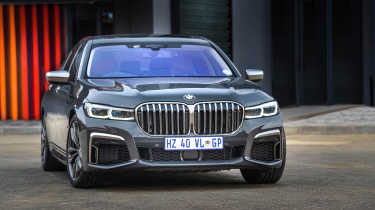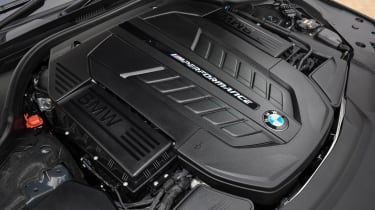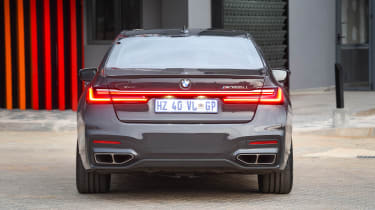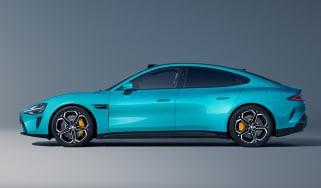BMW M760Li Final Edition marks the end of the V12-powered BMW
Time is being called on the V12 at BMW, with the last 12 M760Li models exclusive to the USA
BMW has called time on its V12 engine, confirming that after a short run of 12 special edition M760Lis destined only for the US, it will no longer offer a V12 engine in any of its models across global markets.
That’s not to say BMW’s V12 engine will be going out of production entirely, though, as Rolls-Royce will retain its 6.75-litre variant for the Ghost, Phantom, Cullinan and Dawn models. This is something unlikely to change any time soon thanks to the Rolls-Royce customer base and their popularity in markets that are less sensitive to environmental pressures, but with the Wraith’s successor due with an all-electric powertrain even Rolls-Royce won’t be immune to the pressures being put on large-capacity engines like the V12 in the next decade.
BMW has a long history with the V12 engine, introducing its first M70 unit in 1987 and going through phases of offering it in both the 7-series saloon and the E31 8-series. It, of course, also laid the groundwork for the iconic S70/2 that found a home in the McLaren F1.
The current N74 unit found in the M760Li is a contemporary take on the V12, employing two turbochargers, 6.6-litres of capacity and all of BMW’s intake and exhaust tricks like Double VANOS to produce a peak power of 601bhp and a huge 590lb ft of torque from just 1550rpm.
In this form, the M760Li is able to reach 62mph in 3.7sec, a mightily impressive figure considering the Final Edition’s big spec, including literally every one of BMW’s luxury and convenience features from laser-assisted headlights to massaging rear seats. Bespoke elements of the Final Edition M760Li are subtle, with some badging changes and a change to the paint colour on the 20-inch Style 760M double-spoke alloy wheels. Unfortunately the V12’s efficiency, or more accurately its lack of, is the main reason for its ultimate demise, making what was always a niche engine option in the 7-series even more so.
How long will the V12 live on in its other forms? As companies like GMA and Aston Martin are proving, the market for low-production V12 supercars remains steadfast – despite the £2m-plus price points they now demand. Yet BMW’s input to the V12 engine’s history took it in the opposite direction, bringing a certain level of democratisation, which like Jaguar, brought down the entry-price for this very special type of engine.






